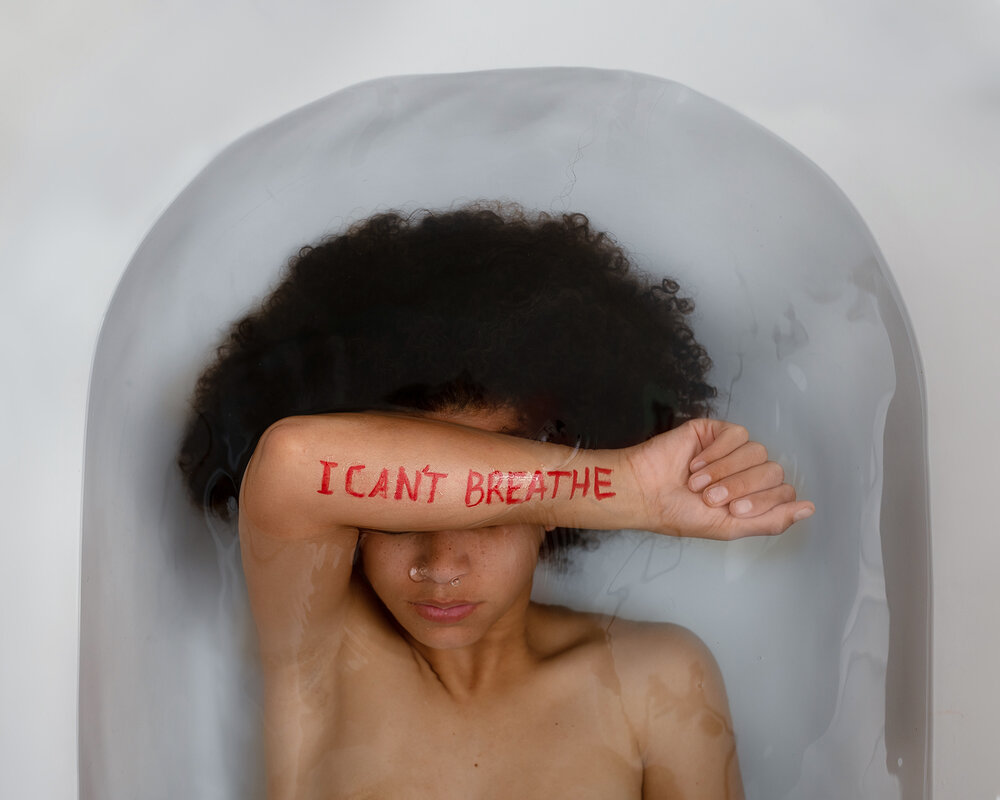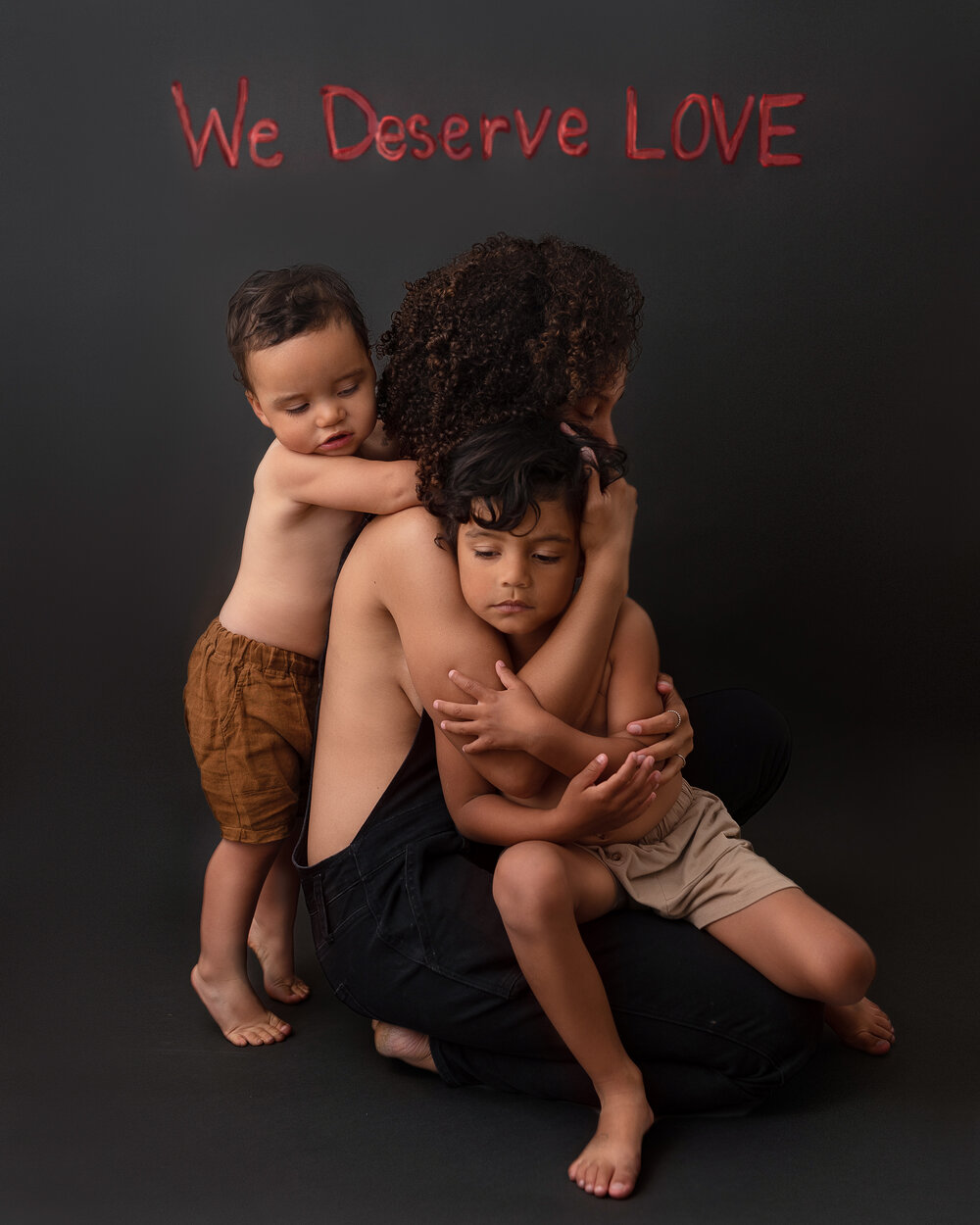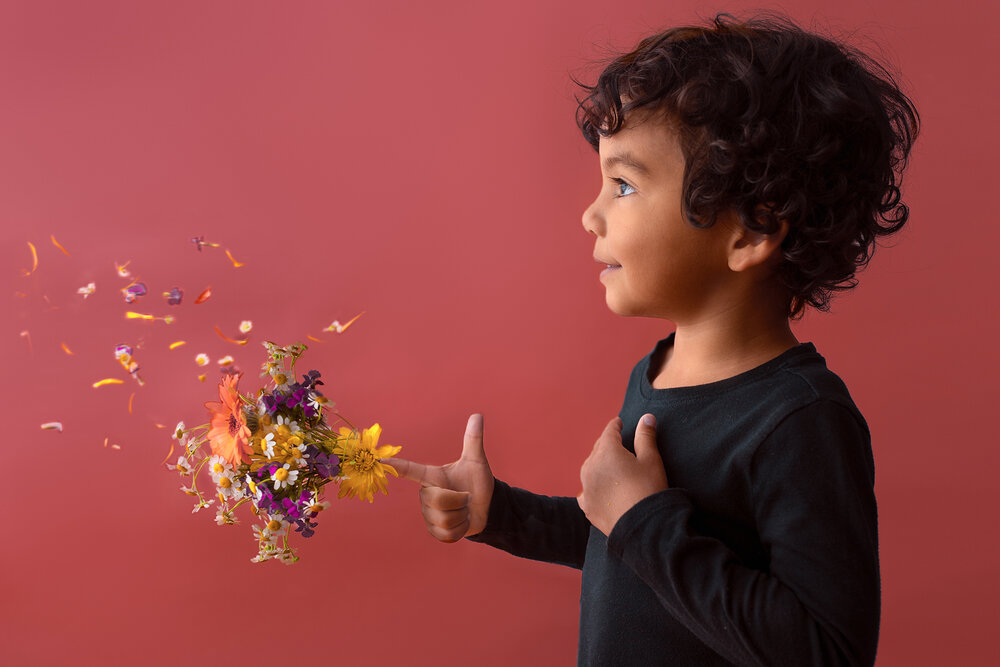Abi Coop
Melissa Richard
Kristen Ryan
Tired but Awake | by Aralie Rangel
June 16, 2020
Growing up in 1970’s Mississippi, my dad has many stories about how racism shaped his life. Stories of how he was one of the first black people to join an all-white school. Stories of how he was so poor, he didn’t have indoor plumbing. Stories of how he couldn’t walk by houses that flew the confederate flag because he knew, REALLY knew, what that flag stands for.
My dad has many stories, but not many times has he shared. “Why?” You may be asking, “Have not people asked?” Let me explain:
White privilege is an umbrella that covers a myriad of areas. One area is white ignorance. White ignorance is the privilege of not wanting to be uncomfortable. Chances are you’ve let a joke slide, misinformation go unchallenged, and racist lies go unchecked all at the behest of keeping white people, or you, comfortable. Sometimes I, me, us, black people, let oppression stamp us down all for the sake of white comfort, white ignorance. We have gotten so used to people not listening, to being gaslighted about the effects of systemic racism in our lives that we feel like we are beating a dead horse. And when you’re white, and have the advantage of not listening to something that doesn’t affect you, it probably does seem like our brothers and sisters out there sharing their truths are beating a dead horse. Here’s the thing though… that horse isn’t dead. It’s tied up with the rope of complacency, the knots of disinformation, the lasso of silence all while policymakers, law enforcement, and government institutions beat on the poor horse until it stops moving; until it submits so that the American public will think that this horse is dead. Let me say it again: white people have the advantage of not listening to anything that doesn’t affect them.

As I was preparing to share my stories, I often – more often than I’d care to admit- would ask myself “what if the person I’m writing this about sees this?”, “What if they get offended?”, what if… what if… what if. You see, the cycle of silence is confined to the system, culture, and communities that affect so much of our lives. I didn’t want to make my white friends feel uncomfortable. That just shows how deep covert racism ran in me, even as a black woman. Sometimes I think about why my dad never shared his horrifying stories only to be reminded that for a black American living in 1970s Mississippi, silence was not only the status quo; it was a matter of life and death.

During these last 3 politically charged weeks my friends were reaching out to me asking “How can I be better? … What are your thoughts on xyz?… Did you see this video of…?” Even though they meant well, I didn’t answer. I didn’t respond because I was so overwhelmed with anger and hurt from George Floyd’s murder that I needed time to myself to mourn. I wanted to be embraced, instead people were asking me for a quick absolution. They wanted to get rid of the feeling of guilt, grief, rage and, unbeknownst to them, leave me and every other black person in America, alone on our island. They didn’t want to fix the injustice, just rid themselves of the guilt. Then my best friend, who had never asked before, came to me and asked a HARD question: “I know you have encountered racism, but can you tell me your experiences?” I was relieved and thankful that someone asked, because I didn’t realize it, but I wanted to share. Part of the healing process for any society is to acknowledge and seek to understand the root problem. All this time, I had wanted to share my pain and my hurt that people seldom ask about. I wanted someone to listen!

Even though I was nervous to share my deeply personal stories, I decided I needed to so people can understand what we as black people go through. And guess what happened? People listened and encouraged me to share more. They engaged! My friends said they never knew, but they were starting to understand. Strangers told me they felt my anguish and longed to give me a hug. People that once had said “all lives matter” were now commenting on my pictures full of love and support. The overwhelmingly positive response to my posts left me wondering why I hadn’t shared before. I felt liberated sharing my truths. Liberated from the ache of loneliness that was brought by carrying these burdens alone. I am now tightly wrapped by my community telling me I matter. I felt heard, I felt seen. All this because someone asked a hard question. And not only did they ask, but they listened and learned.

If you are reading this and personally know a black person, consider asking them “What are your experiences with racism?” and then LISTEN. Don’t listen to solve their problem or to try and undo the damage. Don’t listen and give the benefit of the doubt to the person in their story. Just listen. Look them in their eyes. Memorize their tears, hear their voice shake, feel their anger, remember the sadness. Don’t try and push these stories away because they are ugly. Face the monster and be strong. Don’t seek comfort, seek justice. Internally listen because hearing personal stories of racism often softens our hearts and opens our mind to the idea that we are all complicit in furthering active, institutional, and systematic racism.
Help us stand on our soap box and ask us about our lives! It won’t be pretty. But then again, this is not a pretty story. It is a brutal, soul-rending story that has taken place over centuries and is currently alive. There is no clean resolution, but who said that was the goal, anyways? To tell this story correctly and start the healing process requires a familiarity with discomfort. One that as a black American have had no choice but to develop and one that you, as a reader will have to acquaint yourself with. Growth takes discomfort and revolution asks that we all run towards discomfort, at full speed, because the promise of justice is that much sweeter.

My biggest hope is not that my name will go down in history as a civil rights figurehead. No. My biggest hope is that next time someone feels the urge to turn away from a headline, or type ‘all lives matter’, or tell black people how the racism they’re facing isn’t real, they will REMEMBER my face, see my tears, feel my anger and anguish. Maybe I can be the face of the systematically oppressed amongst my inner circle. That’s how I can make a difference, how are you?
Follow Aralie on Instagram for more of her inspiring words and art!
Thank you, Aralie for your bravery in sharing your stories. I really look forward to hearing and seeing more of your POV.
Beautiful!
This is absolutely beautiful. Thank you for sharing your story, my friend!